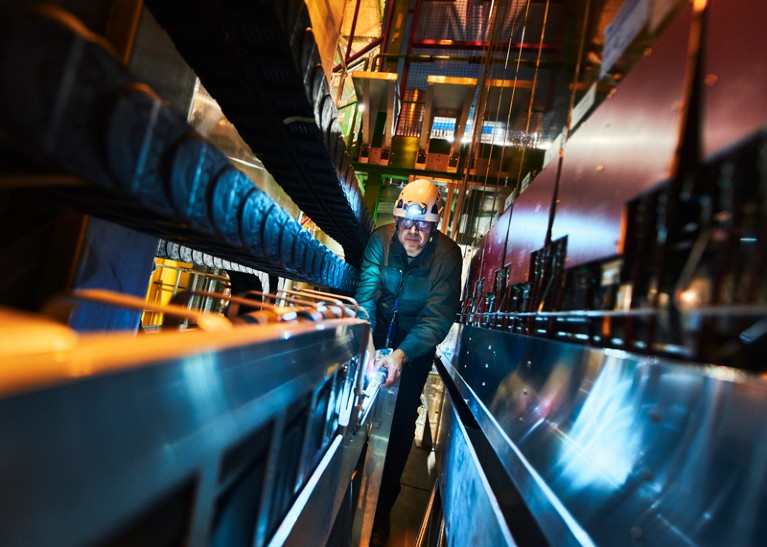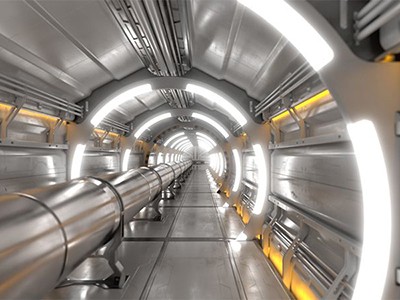
Particle physicists must engage with critics of plans for an expensive new collider.Credit: Maximilien Brice, Julien Ordan/CERN
Last week, officials at CERN outlined their vision of the European physics facility’s future. Over the next two decades, they want to build a €5-billion (US$5.7-billion), 100-kilometre-long, circular tunnel — about the length of the Washington DC Beltway. This would host the next big collider, smashing electrons and positrons, as well as a more powerful version of the existing Large Hadron Collider (LHC). The entire programme could end up costing €30 billion in construction costs alone.
CERN, near Geneva, Switzerland, certainly has the credibility to pull off such an ambitious programme. But not everyone in the research world has embraced it, with some baulking at the proposed cost. In return, some in the particle-physics community acted as if such scepticism were a betrayal of science. A few took to blogs and social media to launch personal attacks against their critics.
Next-generation LHC: CERN lays out plans for €21-billion supercollider
It should go without saying that any decision on whether to fund a scientific project must weigh the costs and benefits, and whether it represents a missed opportunity to fund something else. It is essential that researchers and others debate this — and are seen to do so — in good faith and with respect for a diversity of opinions.
Some physicists think that the science case for building a bigger collider has become weaker since the LHC began operations. Its main triumph was the discovery of the Higgs boson in 2012. After the Higgs, theorists expected that the LHC would open up a world of more-massive particles, the study of which would require a new machine. No such particles have yet materialized. This has lent support to the idea that there are no new ones to be found, even in a larger collider. Consequently, the main argument for building such a machine rests on exploration.
Yet the push to higher energies is not the only way to pursue an ambitious programme. After the United States shut down the Tevatron accelerator in 2011, it moved on from building such machines. Its flagship Fermi National Accelerator Laboratory near Chicago, Illinois, has shifted focus to neutrino experiments. These do not require acceleration to the most extreme energies, but are likely to produce many key results.
CERN’s proposal is its opening bid in a priority-setting process for European particle physics. Experts and policymakers will be evaluating options, and are due to announce their findings in 2020. The decisions will affect the field for the better part of a century. Whether to go for a supercollider or for cheaper options will be a difficult and inevitably controversial choice. Hopefully, it will be a decision on which rational, well-meaning people can agree to disagree.

 Next-generation LHC: CERN lays out plans for €21-billion supercollider
Next-generation LHC: CERN lays out plans for €21-billion supercollider
 Inside the plans for Chinese mega-collider that will dwarf the LHC
Inside the plans for Chinese mega-collider that will dwarf the LHC
 China, Japan, CERN: Who will host the next LHC?
China, Japan, CERN: Who will host the next LHC?


